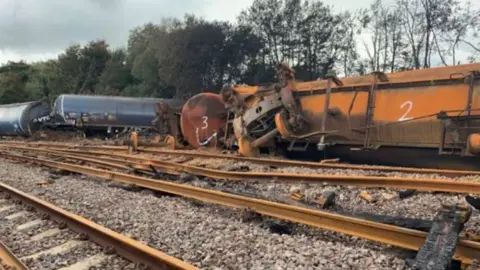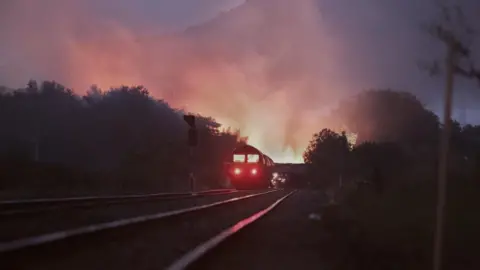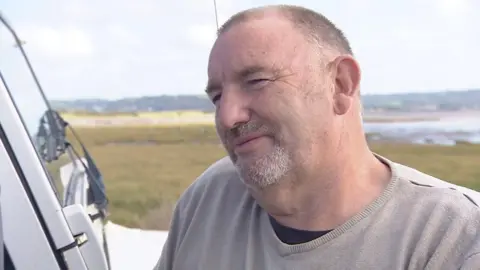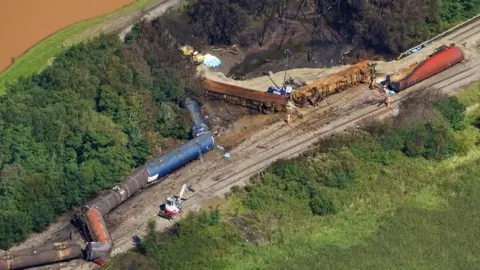Diesel pollution fears after Llangennech train derailment
 BBC
BBCThere may be "long-term effects" from diesel spillage after a train derailed in Carmarthenshire, Natural Resources Wales has said.
Ten wagons, each containing 75 tonnes of diesel, derailed and spilled oil into the Loughor Estuary at Llangennech near Llanelli last week.
Homes were evacuated and a major incident declared after the freight train derailed and burst into flames
NRW said it had found evidence of diesel at various sites on the estuary.
Cockle beds and shell fisheries on the estuary have been closed since the spillage.
 Pembrokeshire Herald
Pembrokeshire HeraldRobert Griffiths, a cockle picker and Secretary of the Burry Inlet Handgatherers Association said it was a difficult time for the industry.
"No work, no pay. If we don't go to work we don't get any money to pay our bills, our mortgages.
"Most of us don't know anything else. I've gathered cockles for over 25 years, some have been doing it over 40 years.
"That's all they've ever done. They have never had to fall back on something else, so they wait."

The estuary is part of the Carmarthen Bay and Estuaries Special Area of Conservation, and wildlife groups have already warned it could have a "devastating impact" on the environment.
Mr Griffiths said he was also worried about the effect the spillage would have on consumer confidence in their product, with suppliers turning away from the area.
"I suppose half the world knows now there's been an oil spill - due to the internet - in the Loughor Estuary.
"Is half the world going to buy a can of cockles because they may or may not have diesel in them? I don't know.
"They might turn around and say 'sorry boys, we've done a survey and our customers don't want them so we can't buy them'. It's hard."
Natural Resources Wales was not able to investigate the damage of the spill until the fire was put out, which took 33 hours.
British Transport Police's initial probe has ruled out criminal intent, and the Rail Accident Investigation Branch is examining the cause of the crash.
The driver and engineer of the DB Cargo train escaped unhurt.
On Saturday, NRW said the spill was "no longer confined to the upper reaches of the estuary and had been observed at many locations as far as Crofty".
 John Bulpin
John BulpinIoan Williams, from the agency, said experts would continue monitoring the area over the next few weeks.
"There may well be long-term effects, we don't know yet is the bottom line.
"This may take a period of time… and also, as the diesel starts to come out of the sand and manage to come a bit further down the estuary, we may see impacts a bit later on.
"It's a big clean-up operation… the cost will be substantial.
"This is a very important area, of European importance, there are a raft of designations here.
"Penclacwydd isn't far from here, it's very important for migratory wildfowl, it's important for the mussels, the cockles etc… and we are concerned about the impact that this may have."
